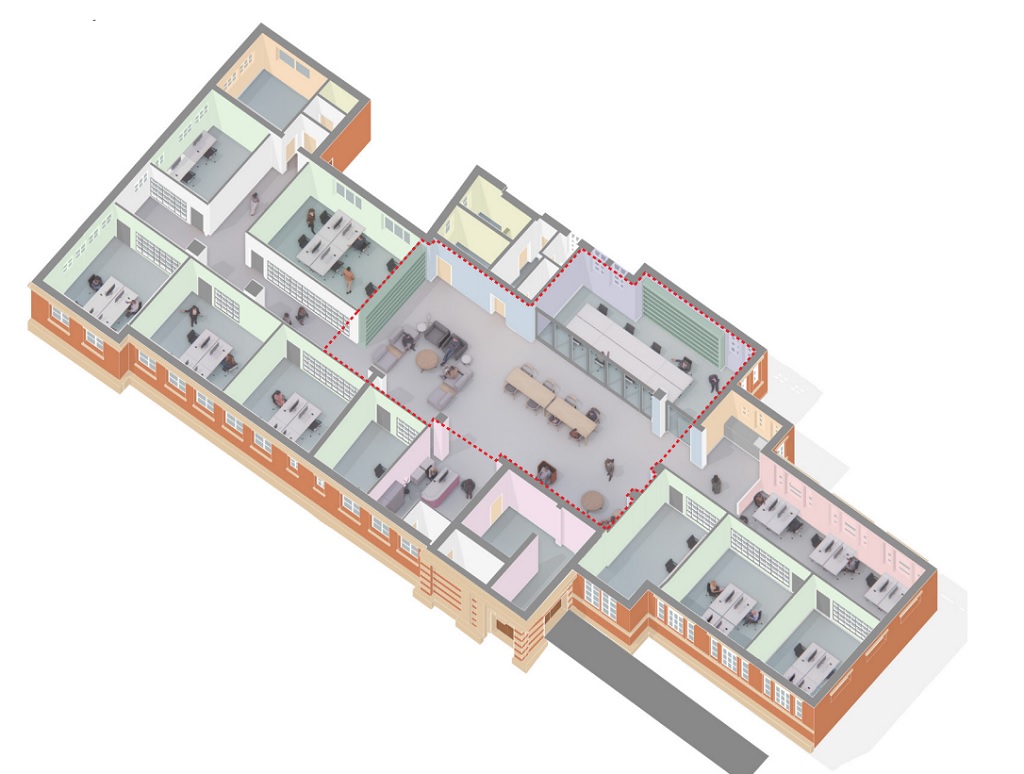GMCA responds to national planning policy
The Greater Manchester Combined Authority has responded to the government's controversial draft National Planning Policy Framework.
Local authority leaders from across Greater Manchester welcomed the idea that the process should be simplified, but expressed a number of concerns on the way the current proposals could hinder growth in Greater Manchester.
The draft NPPF went out to consultation in July and had a deadline for comments set at 17 October.
The Association of Greater Manchester Authorities submitted a draft response by the deadline and is seeking endorsement, subject to any amendments which may be required, by The Greater Manchester Combined Authority before finally submitting its comments.
Within its response, AGMA focussed on key areas that the government should consider. Below are the key points taken from the report, which can be viewed in full here.
- Need for a growth focused planning framework for cities – Greater Manchester is about growth. Central to everything we do, is the desire to improve the economic competitiveness of Greater Manchester, to promote and facilitate economic growth and to boost productivity. We are concerned however that the NPPF is fundamentally designed to manage development pressures in London and the South East. There is a real danger that the understandable quest to reduce what are seen to be constraints to growth in the South East is seen to require equal application across the rest of the country. This is a flawed analysis. Incentivising development in the regions is also essential, not only to achieve the Government's objectives of re-balancing the economy but also ensuring cities achieve their full potential. We need a framework which responds to both requirements
- Necessity for a spatial strategy for sustainable growth – Given the stated aims of the NPPF are to encourage growth, it is very surprising, and we consider a fundamental weakness, that the document is 'spatially neutral'. It is essential that there is a national spatial strategy for growth which identifies those broad locations which have the most potential to deliver sustained and sustainable economic growth.
- We would expect to see Manchester identified in a spatially focused growth strategy as second only to London in its ability to drive growth. If such a context existed, we would have little concern with most of the proposals outlined in the NPPF – we would welcome the flexibility that this introduces and we would continue to 'plan positively' within the sub region. Without this spatial focus the NPPF actually provides a framework for dispersed growth, and actively undermines the contribution that cities like Manchester can make
- Sequential test for town centres – The NPPF proposes to exclude offices from the town centre sequential test. This would have a direct impact upon our ability to reverse the decline evident in our sub regional town centres. Our town centres have been declining but our evidence shows that footfall arising from the intensification of uses in town centres is supported by having significant non retail and non leisure employment uses within them. The proposal to locate major employment uses, which generate high numbers of visitors, to out of centre locations accessible mainly by car, runs directly counter to this and could lead to the return of trunk road and motorway business parks. It is therefore of serious concern that office development would not be subject to the same sequential test as retail and leisure. The sequential approach should still apply to large office developments, but the NPPF should make it clear that areas highly accessible to public transport and not mainly reliant on access to major roads are also acceptable for large offices and leisure developments
- Emphasis on 'up to date' development plans – We agree that development plans should be up to date. However there is a concern that core strategies – both those recently adopted, and those under preparation – will need to be reviewed as they will not be 'in compliance with the NPPF'. Districts have been working on their development plans for some time. Government has been exhorting districts to push ahead with their core strategies and not to await the outcome of the review of national planning policy. It is inconceivable that all recently prepared and emerging plans (which have taken many years and have been very expensive) will now need to be reviewed immediately. Of even more concern, if this is the case, is that GM would be without any form of development plan coverage and, as the default position in these circumstances is to approve development, the ability to deliver strategic objectives would be compromised
- Planning Strategically Across Boundaries – Duty to Co-operate – We welcome the explicit requirement for neighbouring authorities to co-operate on strategic issues of cross boundary significance. This formalises the voluntary approach which has been so successful over many years in GM. In order to plan strategically and sustainably the duty to co-operate should extend to all public sector partners who may have a role in bringing forward development (including for example the Department of Health); to Local Enterprise Partnerships, as these are now the only bodies which have a remit for 'larger than local 'issues; and to 'publically funded' bodies, crucial for growth but currently excluded, such as the utility companies. It is considered that there also needs to be greater clarity generally on what the duty to co-operate actually entails; what are the sanctions if organisations do not 'co-operate'; and who is the 'arbiter' where disputes arise
Cllr Richard Leese, leader of Manchester City Council and vice chairman of the Greater Manchester Combined Authority, said: "Indeed we believe that a simplified planning process has the potential to unlock growth – which is critically important in the current economic climate. We also welcome the focus on achieving sustainable development, particularly boosting housing supply, and devolving decision making to the appropriate level.
"We're concerned that some of the proposals could have the unintended effect of actually hindering Greater Manchester's ability to deliver sustainable economic growth.
"The NPPF should support the fact that cities need cohesive and straightforward planning processes that is integrated with housing, transport and economic development strategies."
Cllr Derek Antrobus, chairman of Greater Manchester's planning and housing commission, added: "It is also of serious concern that office development would not be subject to the same sequential test as retail and leisure.
"The proposal has a direct impact upon our ability to safeguard the future of the Regional Centre, the economic engine of the north, and our attempts to reverse the decline evident in our sub-regional town centres.
"As it stands, NPPF could lead us back to trunk road and motorway business parks – disastrous for both town and city centres, as well as pollution and health.
"The emphasis on 'up to date' development plans has the potential to undermine strategic objectives and removes autonomy for both local authorities and local communities.
"It is inconceivable that all recently prepared and emerging plans will now need to be reviewed as they will not be 'in compliance with the NPPF'. The NPPF and accompanying statements need to clarify that recently adopted core strategies and those advanced enough to be at publication/submission stage, will not be required to be reviewed immediately.
"We look forward to further discussions with Government on these issues before the NPPF is finalised in April 2012."



